10 Best Healthy Vegetables You Can Eat, According to Science (2022)
Fom leafy greens to cruciferous veggies, vegetables are a gift from nature. Filled with immune-boosting antioxidants, fiber, B-vitamins and minerals, vegetables can make a big impact on your health. In fact, countless studies have linked the benefits of increased veggie intake to decreased risk of chronic disease, including heart disease, diabetes and certain cancers.
While all vegetables are good for you, this is a list of our favorite healthiest vegetables. We encourage you to use this list as guide to create healthy meals and snacks you can enjoy throughout the day. But don't just stick to one. Feel free to choose a variety of veggies to bulk up your meals with nutritious flavor.
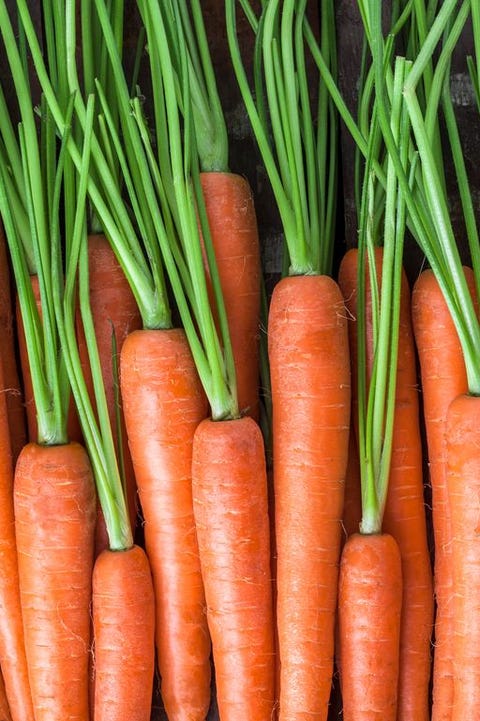
BOJSHA65 / GETTY IMAGES
Carrots are full of phytochemicals such as beta-carotene that your body converts to vitamin A, which helps with vision — especially at night. Studies also associate consumption with carotenoid containing foods, like carrots, with a decreased risk of breast cancer. Carrots also contain vitamins K, C as well as potassium and fiber. Enjoy these root veggies raw, shredded in salads, or blended in smoothies.
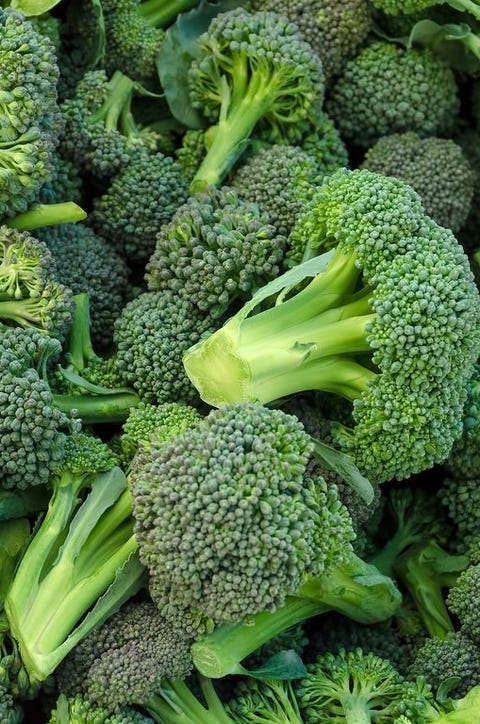
S_DEREVIANKO / GETTY IMAGES
Broccoli gets its healthy rep because it’s low in calories and high in micronutrients, including vitamin C, vitamin A, and vitamin K. Broccoli also contains the phytochemical sulforaphane which may help prevent against cancer. Broccoli is also a great source of Vit C, K and A among others. Eat it raw, grilled or steamed versus boiled to reap a bigger nutritional bonus.
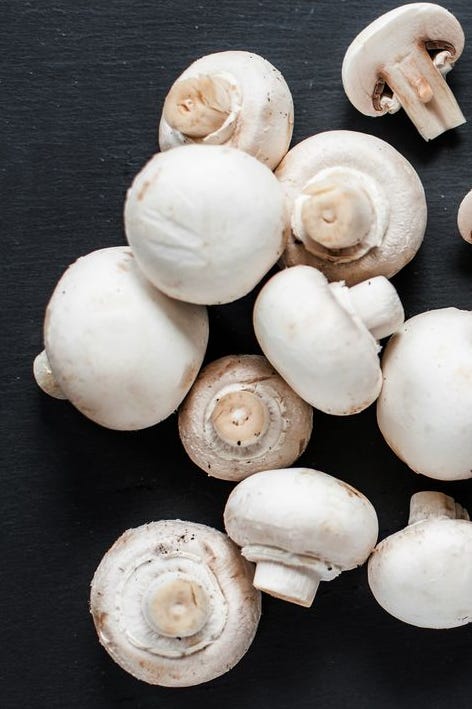
ZAKHAROVA_NATALIA / GETTY IMAGES
Mushrooms are technically fungi, but they can help with cognition, heart health, and disease prevention. Rich in B vitamins, swap 'em in as a replacement for meat, or enjoy them grilled, sauteed or steamed— studies suggest they can lower your risk of depression.

A Veggie That's a Fruit, With More Vitamin C Than an Orange. Many of the health benefits of red bell peppers can be attributed to the combination of bioactive compounds found within them. A single red bell pepper contains 30 different antioxidants, making them one of the most nutrient-dense fruits you can eat.
Antioxidants have been shown to help fight heart disease, prevent cancer, protect against liver disease and combat oxidative stress and inflammation. One of the notable compounds in red bell peppers is quercetin, which is known to have a wide range of health benefits. Quercetin has been shown to help reduce inflammation, alleviate pain, lower blood pressure and improve learning and memory.
Of course, some of the health benefits of red bell peppers are also a result of its high vitamin C content. Although vitamin C is often hailed for its powerful immune-boosting properties, it has a protective effect against heart disease and early death, too.
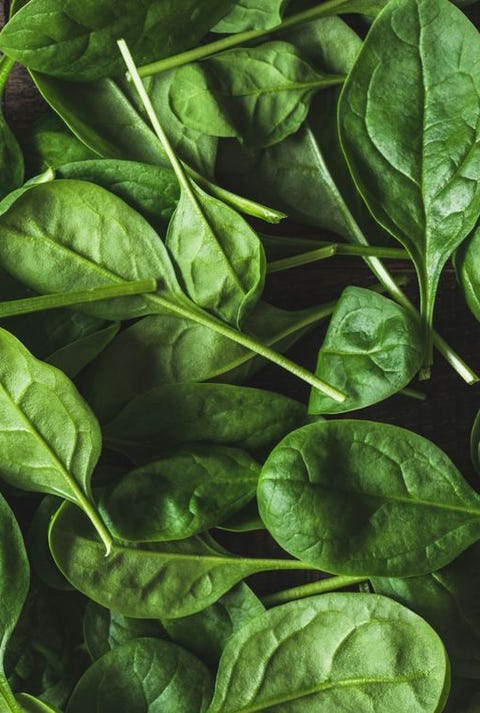
ARX0NT / GETTY IMAGES
This leafy green is one of the most versatile vegetables, eat it raw tossed in a salad, sautéd, steamed or throw it in a smoothie as a neutral way to boost your green intake. One cup contains your entire daily requirement of Vitamin K and it has tons of vitamin A (over half of the recommended daily amount in a serving!), and vit C which helps boost and enhance your immune system. It also loaded with nitrates which studies have linked with improved cardiovascular health — so make like Popeye and add this leafy green to your diet on the regular.
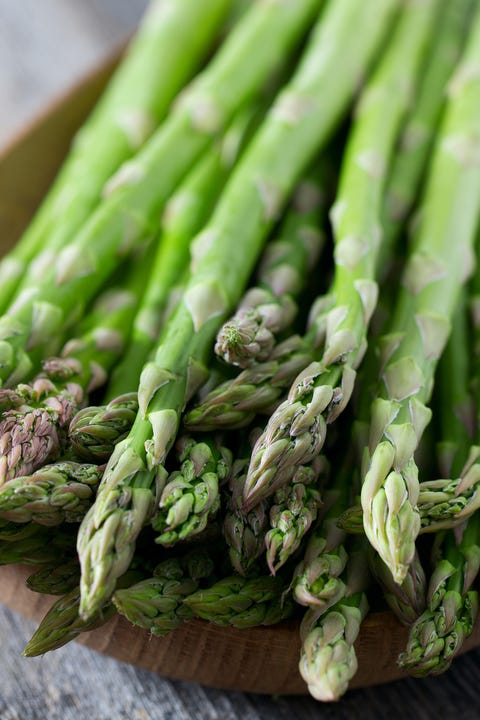
DIANA TALIUN / GETTY IMAGES
Rich in antioxidants, asparagus is a natural diuretic and as a prebiotic it feeds healthy gut bacteria. Whether you enjoy asparagus roasted or sauteed, grab a bunch the next time you're at the grocery store. The stalks contain only a few calories but lots of fiber and micronutrients such as folate, vitamin C, vitamin A, and vitamin K.
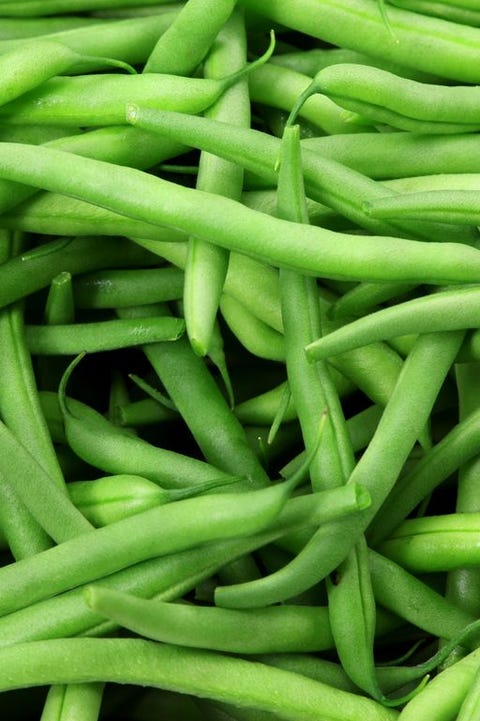
DIRKR / GETTY IMAGES
Green beans are a good source of vitamin A, vitamin C, vitamin K, fiber and they get their bright green color from the antioxidant chlorophyll. The longer you cook them the quicker they lose their vibrancy. Steam, sauté or serve them raw as a side or added to salads.
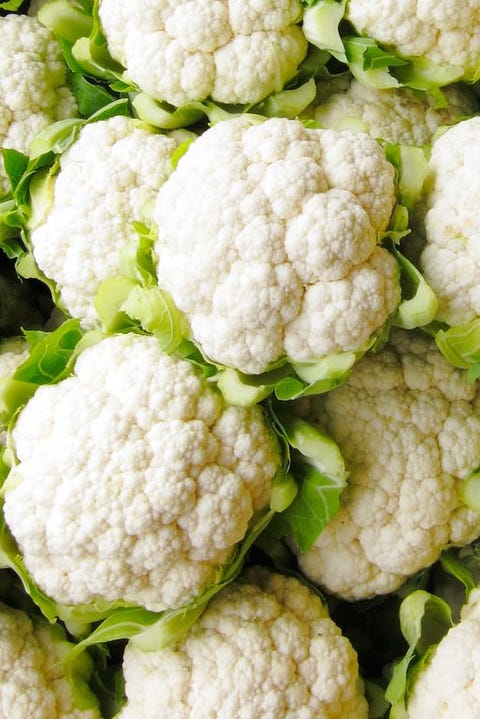
GETTY IMAGES
If you haven't already gotten in on the cauliflower craze, it's not too late to join. Swapping spuds for cauliflower is an easy way to sneak in extra vitamin C (one cup contains almost 100% of your daily recommended amount!), vitamin K, potassium, vitamin B6, folate and plant-based omega-3’s to your meal.
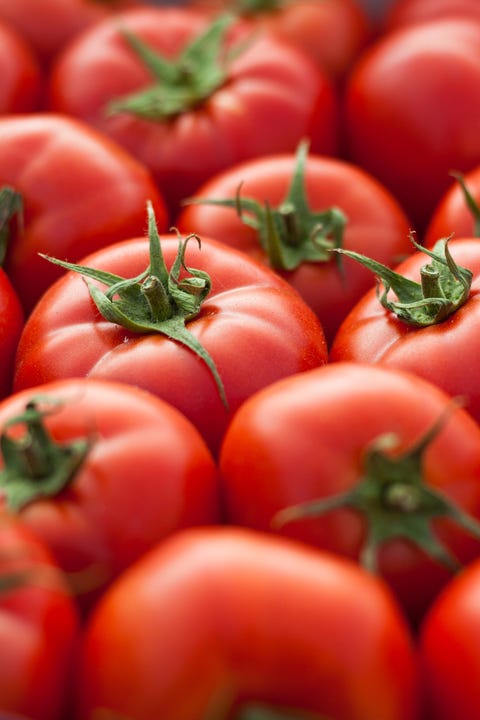
NRQEMI / GETTY IMAGES
Many nutritionists consider tomatoes both vegetables and fruits. Tomatoes contain lycopene, which give the salad staple its rosy red color. Research has shown that lycopene supports vascular health and helps prevent cardiovascular disease.
While consuming tomatoes raw can provide lycopene, cooking them may also increase the bioavailability of this mighty antioxidant.
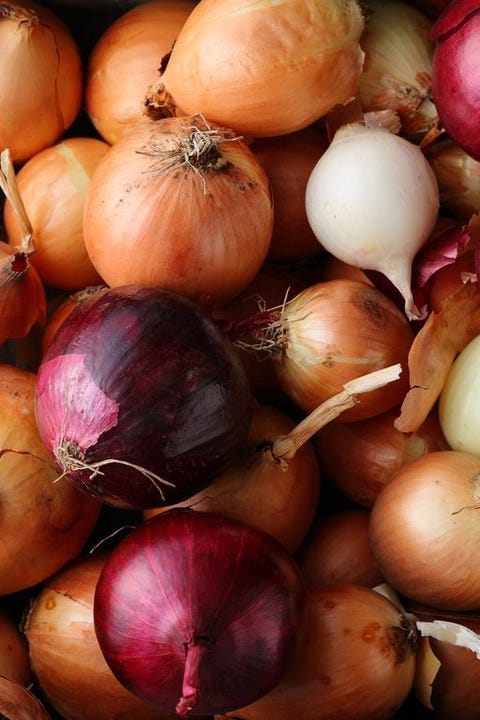
OLHA_AFANASIEVA / GETTY IMAGES
Onions are a member of the allium family. Recent research suggests that phytochecmials found in onions and other allium vegetables might be beneficial in the prevention of certain types of cancer. They're also considered a prebiotic and can help to improve gut health and digestion by working to increase the good bacteria.
While there are many different types of onions, yellow is the most widely used. Not only will onions punch up the flavor of whatever you're cooking, but they also contain a flavonoid called quercetin, which has been shown to help with obesity prevention and improved liver function.
While all vegetables are good for you, this is a list of our favorite healthiest vegetables. We encourage you to use this list as guide to create healthy meals and snacks you can enjoy throughout the day. But don't just stick to one. Feel free to choose a variety of veggies to bulk up your meals with nutritious flavor.
1. Carrots

BOJSHA65 / GETTY IMAGES
Carrots are full of phytochemicals such as beta-carotene that your body converts to vitamin A, which helps with vision — especially at night. Studies also associate consumption with carotenoid containing foods, like carrots, with a decreased risk of breast cancer. Carrots also contain vitamins K, C as well as potassium and fiber. Enjoy these root veggies raw, shredded in salads, or blended in smoothies.
2. Broccoli

S_DEREVIANKO / GETTY IMAGES
Broccoli gets its healthy rep because it’s low in calories and high in micronutrients, including vitamin C, vitamin A, and vitamin K. Broccoli also contains the phytochemical sulforaphane which may help prevent against cancer. Broccoli is also a great source of Vit C, K and A among others. Eat it raw, grilled or steamed versus boiled to reap a bigger nutritional bonus.
3. Mushrooms

ZAKHAROVA_NATALIA / GETTY IMAGES
Mushrooms are technically fungi, but they can help with cognition, heart health, and disease prevention. Rich in B vitamins, swap 'em in as a replacement for meat, or enjoy them grilled, sauteed or steamed— studies suggest they can lower your risk of depression.
4. Red Bell Peppers

A Veggie That's a Fruit, With More Vitamin C Than an Orange. Many of the health benefits of red bell peppers can be attributed to the combination of bioactive compounds found within them. A single red bell pepper contains 30 different antioxidants, making them one of the most nutrient-dense fruits you can eat.
Antioxidants have been shown to help fight heart disease, prevent cancer, protect against liver disease and combat oxidative stress and inflammation. One of the notable compounds in red bell peppers is quercetin, which is known to have a wide range of health benefits. Quercetin has been shown to help reduce inflammation, alleviate pain, lower blood pressure and improve learning and memory.
Of course, some of the health benefits of red bell peppers are also a result of its high vitamin C content. Although vitamin C is often hailed for its powerful immune-boosting properties, it has a protective effect against heart disease and early death, too.
5. Spinach

ARX0NT / GETTY IMAGES
This leafy green is one of the most versatile vegetables, eat it raw tossed in a salad, sautéd, steamed or throw it in a smoothie as a neutral way to boost your green intake. One cup contains your entire daily requirement of Vitamin K and it has tons of vitamin A (over half of the recommended daily amount in a serving!), and vit C which helps boost and enhance your immune system. It also loaded with nitrates which studies have linked with improved cardiovascular health — so make like Popeye and add this leafy green to your diet on the regular.
6. Asparagus

DIANA TALIUN / GETTY IMAGES
Rich in antioxidants, asparagus is a natural diuretic and as a prebiotic it feeds healthy gut bacteria. Whether you enjoy asparagus roasted or sauteed, grab a bunch the next time you're at the grocery store. The stalks contain only a few calories but lots of fiber and micronutrients such as folate, vitamin C, vitamin A, and vitamin K.
7. Green Beans

DIRKR / GETTY IMAGES
Green beans are a good source of vitamin A, vitamin C, vitamin K, fiber and they get their bright green color from the antioxidant chlorophyll. The longer you cook them the quicker they lose their vibrancy. Steam, sauté or serve them raw as a side or added to salads.
8. Cauliflower

GETTY IMAGES
If you haven't already gotten in on the cauliflower craze, it's not too late to join. Swapping spuds for cauliflower is an easy way to sneak in extra vitamin C (one cup contains almost 100% of your daily recommended amount!), vitamin K, potassium, vitamin B6, folate and plant-based omega-3’s to your meal.
9. Tomatoes

NRQEMI / GETTY IMAGES
Many nutritionists consider tomatoes both vegetables and fruits. Tomatoes contain lycopene, which give the salad staple its rosy red color. Research has shown that lycopene supports vascular health and helps prevent cardiovascular disease.
While consuming tomatoes raw can provide lycopene, cooking them may also increase the bioavailability of this mighty antioxidant.
10. Onions

OLHA_AFANASIEVA / GETTY IMAGES
Onions are a member of the allium family. Recent research suggests that phytochecmials found in onions and other allium vegetables might be beneficial in the prevention of certain types of cancer. They're also considered a prebiotic and can help to improve gut health and digestion by working to increase the good bacteria.
While there are many different types of onions, yellow is the most widely used. Not only will onions punch up the flavor of whatever you're cooking, but they also contain a flavonoid called quercetin, which has been shown to help with obesity prevention and improved liver function.
.png)

.png)



.png)


Comments
Post a Comment